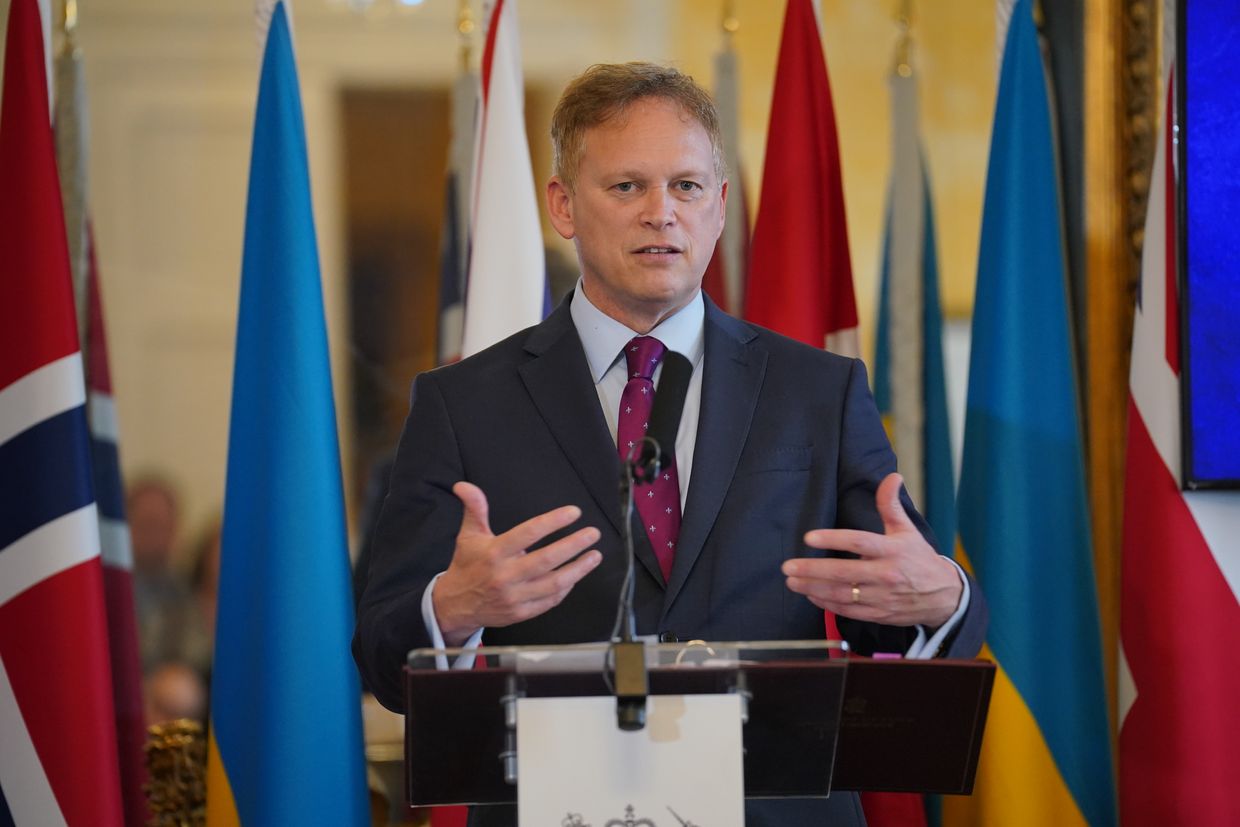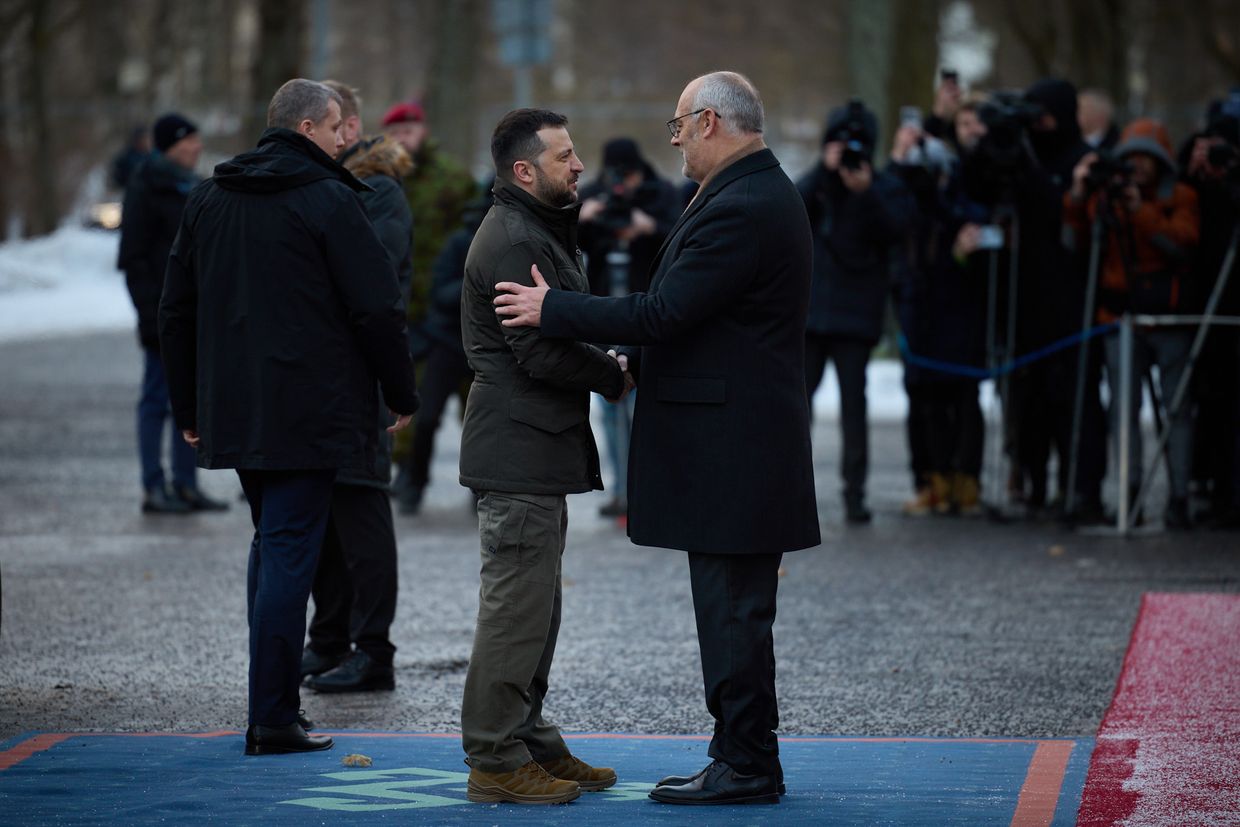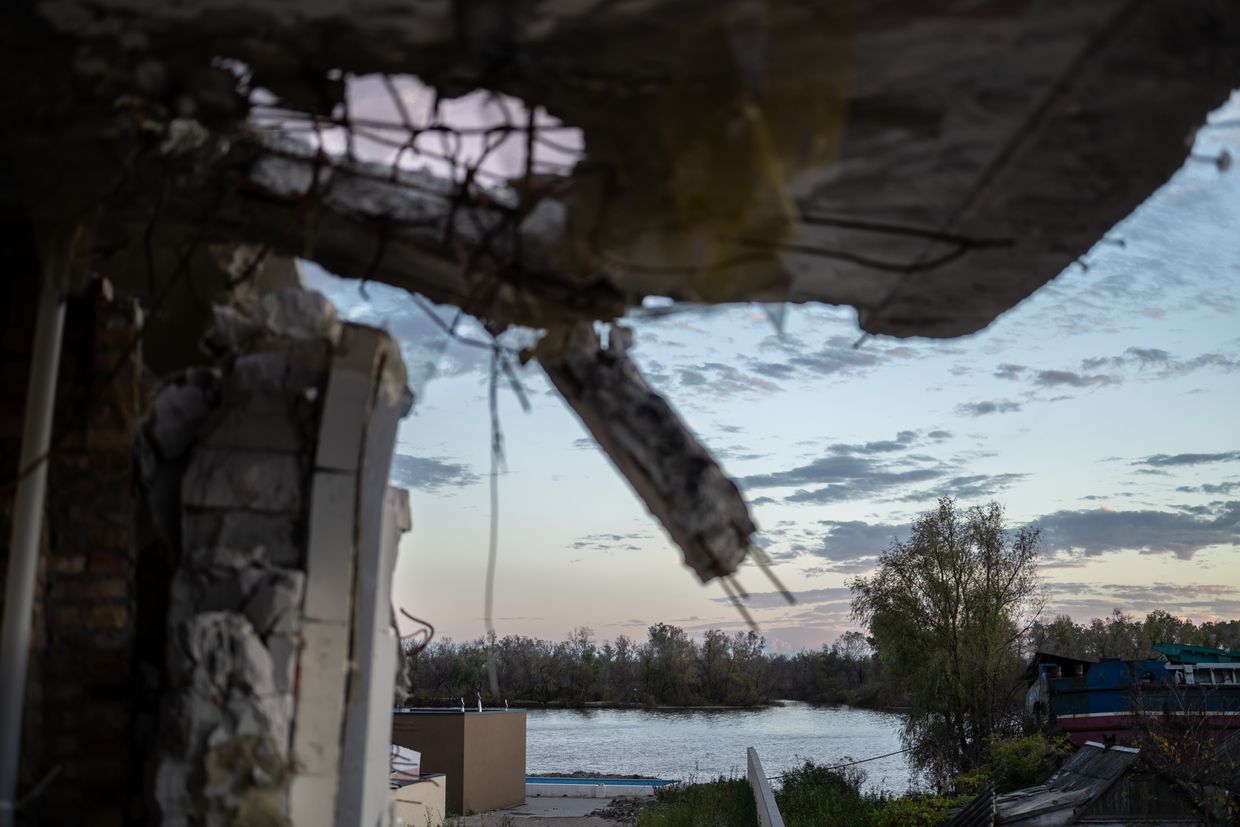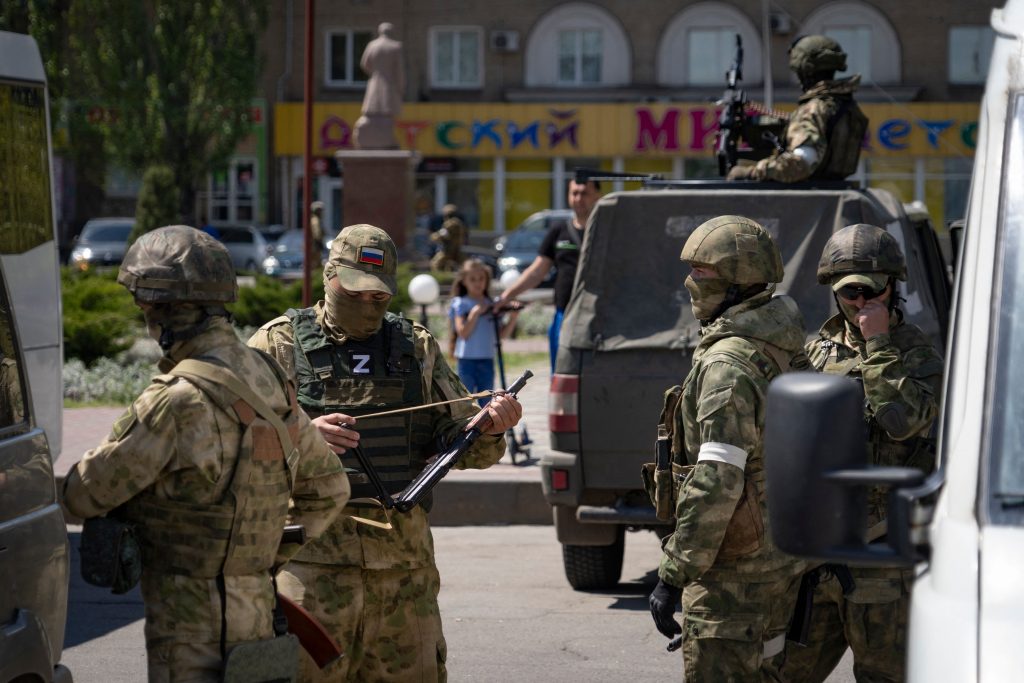Ukraine war latest: Sunak unveils $3.2 billion package, signs security deal in Kyiv

Key updates on Jan. 12:
- Sunak unveils $3.2 billion aid package for Ukraine, signs security deal with Zelensky.
- Ukrainian diaspora asks Australia to send 45 retired helicopters to Ukraine.
- Electronic warfare shortage complicating Russia's defense against Ukrainian drones in Kherson Oblast, UK Defense Ministry says.
- Kremlin reportedly using coal subsidies to force Russian passports on residents in occupied Kherson Oblast.
- Russia lacks some modern weapon parts due to sanctions, according to military intelligence.
U.K. Prime Minister Rishi Sunak announced the expected 2.5-billion-pound ($3.2 billion) military aid package during his visit to Kyiv on Jan. 12, according to the Kyiv Independent's reporter.
The two leaders also signed a new deal on security cooperation, the first bilateral commitment finalized as part of the security assurances announced by the Group of Seven (G7) last July.
The newly announced aid package includes air defense equipment, anti-tank weapons, long-range missiles, and training for Ukrainian soldiers, Sunak said. The U.K. government announced earlier that the tranche also consists of the "largest ever commitment of drones."
Of the 2.5 billion pounds, at least 200 million will be spent to procure and produce thousands of military drones for Ukraine, including surveillance, long-range strikes, and sea drones, read the U.K. government's press release from earlier today.
The prime minister noted that this is the U.K.'s largest assistance package since the start of the full-scale war. Ukraine's head of state clarified that the $3.2 billion package is allocated for this year.
The security deal signed by Sunak and President Volodymyr Zelensky stipulates London's commitment to support Kyiv for a period of 10 years, according to Ukraine's head of state.
The agreement, published on the presidential office's website, sets out a mode of cooperation in the military sphere, maritime security, defense industry, protection of critical infrastructure, and cybersecurity.
Zelensky said the bilateral security agreement between Ukraine and the U.K. is "unprecedented," adding that Jan. 12 "entered the history of our state."
London also pledged to provide Ukraine with economic and humanitarian assistance and to aid Ukraine through military supplies and other support in case of future Russian aggression.
Just as Sunak was visiting Kyiv, media reports appeared that recently appointed French Foreign Minister Stephane Sejourne is expected to arrive in Ukraine's capital a day later on Jan. 13.
Ukrainian diaspora asks Australia to send 45 retired helicopters to Ukraine
The Australian Federation of Ukrainian Organisations (AFUO) appealed on Jan. 12 to the Australian government to supply Ukraine with 45 decommissioned Taipan helicopters rather than scrapping them.
Media reports emerged in December that the Australian military decided to quietly disassemble and bury its fleet of multi-role Taipan helicopters, even though Kyiv sent an official request for their transfer to Ukraine.
In its statement, the Ukrainian diaspora organization in Australia said that these vehicles "could be a game-changer in Ukraine."
"The Ukrainian community will be rallying this Sunday, Jan. 14, at 2 p.m. at the Sydney Town Hall to call on the (Anthony) Albanese Government to reverse its decision," the AFUO said, promising further rallies in other cities in the coming weeks.
The reports that the Australian government plans to disassemble the helicopters sparked a public outcry. Subsequently, Australian Defense Minister Richard Marles said that the helicopters would be disposed of in a manner that maximizes their value, without elaborating further.
The Asia-Pacific Defense Reporter wrote that the helicopters, retired only in late 2023, were in excellent condition. They can be used for various tasks, including troop transport, search-and-rescue, medical evacuation, and special operations.
The Australian military began decommissioning them in favor of Black Hawk helicopters due to Taipans' reported maintenance issues. The entire Taipan fleet was grounded following an exercise crash that killed four service personnel.
Electronic warfare shortage complicating Russia’s drone defenses in Kherson Oblast, UK Defense Ministry says
Russia has faced difficulties in countering Ukrainian first-person-view (FPV) drones during combat on the east bank of the Dnipro River in Kherson Oblast, likely due to a shortage of electronic warfare capability in the area, the U.K. Defense Ministry reported on Jan. 12.
The report comes amid Ukraine's ongoing military operations on the Russian-occupied east bank, where Russian troops have already lost around 3,500 soldiers, according to the Ukrainian marines.
Ukrainian forces operating on the east bank have been using FPV drones equipped with munitions in conjunction with artillery to target Russian military vehicles, the ministry wrote in its latest intelligence update.
The ministry cited a Russian military blogger estimating that Russia has lost 90% of its military equipment in the area of Krynky, a settlement some 35 kilometers east of Kherson, which is said to be one of the main flashpoints in this sector of the front.
Russia's newly-formed 104th Guards Airborne Division has likely suffered "exceptionally heavy losses" near Krynky, the U.K. Defense Ministry said in its Dec. 14 update.
Ukraine has been conducting cross-river raids into the occupied part of Kherson Oblast east of the Dnipro River since February, with more intensified attacks reported in August.
In the fall, Russian military bloggers reported that the Ukrainian military established footholds on the occupied bank, and geolocated footage from Oct. 19 confirmed Ukrainian presence in Krynky.
Kremlin reportedly using coal subsidies to force Russian passports on residents in occupied Kherson Oblast
Moscow-installed illegal occupation authorities in Kherson Oblast are offering coal subsidies for heating purposes, but only to those residents who became Russian citizens, the Ukrainian military's National Resistance Center reported.
As part of its forced passportization strategy, Russia creates special incentives oriented toward residents in occupied Ukrainian territory to adopt Russian passports. At the same time, those Ukrainians who refuse Russian citizenship are often threatened with deportation or being forcibly mobilized into the Russian military.
Multiple settlements in the occupied part of Kherson Oblast remain without power supply amid freezing temperatures, creating more need for coal, according to the National Resistance Center, which is run by Ukraine's special forces.
"However, the Russians cynically use even this situation for their plans to change the demographic situation in the region," the center wrote.
Ukraine's Armed Forces liberated Kherson and other regional settlements on the west bank of the Dnipro River in the fall 2022 counteroffensive.
Russian troops were pushed to the river's east bank, which they have controlled for almost two years now, except for some positions retaken by Ukrainian forces during their cross-river raids conducted since February.
Russian Prime Minister Mikhail Mishustin said in May last year that nearly 1.5 million Ukrainians in the occupied territories have been given Russian passports over the past nine months, according to Russian state news agency RIA Novosti.
Ukraine's Ombudsman Dmytro Lubinets said on national television the same month that Ukrainians who were forced to take Russian citizenship to survive in the occupied territories would not be punished by Ukrainian authorities after the war.
Russia lacks some modern weapon parts due to sanctions, according to military intelligence
Russia is missing some weapon components like modern optics and electronics as a result of international trade restrictions, Military Intelligence (HUR) spokesperson Andrii Yusov said on Jan. 12.
This statement indicates that Western sanctions have a tangible effect on the Russian defense industry, although multiple reports show Moscow continues to obtain sensitive sanctioned goods.
"They (Russia) face several restrictions and sanctions. They (sanctions) create additional complications when it comes to modern optics, electronics, and microchips, which is what the enemy lacks," Yusov said on air.
The HUR spokesperson noted that Moscow is trying to establish "gray import schemes" to smuggle in the necessary equipment.
"Russia is one of the world's leading smuggler countries. But as far as the development of modern, high-tech weapons is concerned, there are difficulties," Yusov added.
Yusov nevertheless said that Russia still wields the old Soviet technological base and has the ability to modernize existing projects.
Following the outbreak of the full-scale war, Western countries imposed extensive sanctions against Russia, banning imports of electronics and other goods critical for the production of high-tech weapons like missiles or drones.
In spite of these restrictions, Moscow continues to acquire dual-use goods via third-party countries like Kazakhstan, Turkey, and China.
Ukraine's National Agency on Corruption Prevention (NAZK) identified around 2,500 foreign components in Russian weaponry, mostly from U.S. producers who do not sell their products to Russia directly.















